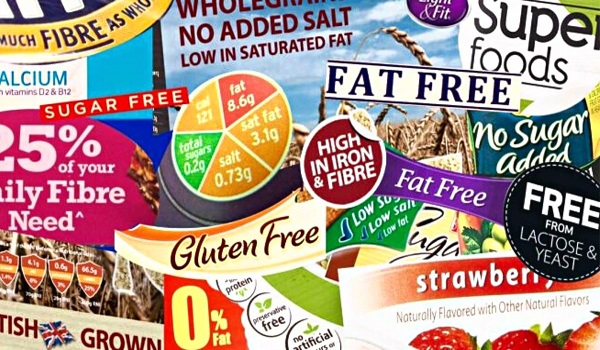The Food Safety and Standards Authority of India (FSSAI) faces mounting pressure to enhance labelling and advertising regulations following public outcry over misleading nutritional information. The catalyst for this demand is the discovery of high sugar content in popular health drinks, such as Bournvita, and issues with contaminated spices.
Many mothers were alarmed last year upon learning from a viral video by social media influencer Revant Himatsingka, known as “foodpharmer,” that Bournvita contains high levels of sugar. The issue extends beyond just health drinks. Many packaged food items in India have been found to conceal critical information about nutrients of concern, such as sugar, salt, and fat. A recent report by Nutrition Advocacy in Public Interest (NAPi) revealed that out of 50 analyzed advertisements, all were hiding key nutritional details. Moreover, 23 of these advertisements featured celebrities, using their influence to promote these products with misleading claims.
In response to these concerns, the National Commission for Protection of Child Rights urged Mondelez International India, the maker of Bournvita, to withdraw all misleading advertisements, packaging, and labels. It took nearly a year for FSSAI to instruct e-commerce platforms to stop labelling malt-based drinks as “health drinks.”
Health experts and NAPi conveners argue that current health drink labels are misleading and contribute to rising obesity and diabetes rates in India. and now there is a more urgent need for FSSAI to enforce clearer labelling and stricter regulations to prevent public health risks.
Despite FSSAI’s efforts, such as ordering the removal of “100% fruit juice” claims from labels and advertisements for reconstituted fruit juices, the implementation of effective labelling regulations remains a challenge. George Cheriyan, a member of FSSAI’s expert group on front-of-the-pack labelling (FoPL), criticized the recent proposal to display nutritional information in bold letters as insufficient, calling it a “sabotage” of more effective labelling systems that have reduced unhealthy food consumption in other countries.
Civil society groups and health experts continue to advocate for stricter regulations, including pictorial warning labels on the front of packaging to alert consumers about high levels of salt, sugar, and fat. They argue that current labelling practices are inadequate and do not sufficiently protect consumers, particularly those who cannot read or understand English.
The urgency for FSSAI to act is underscored by India’s ranking of 67th out of 113 countries on the Global Food Security Index 2022 for food quality and safety. With the country facing a potential obesity epidemic and being dubbed the diabetes capital of the world, the call for stricter food labelling and advertising regulations is more pressing than ever.
FSSAI was established in 2006 to set science-based standards for food safety and to regulate the food industry. However, almost two decades later, food companies still wield significant power in marketing and trading unhealthy products, often at the expense of public health. Experts insist that the responsibility should not fall solely on consumers to make healthier choices; instead, FSSAI must ensure transparent labelling and stringent enforcement of food safety standards to protect the health of all Indians.


